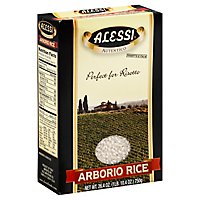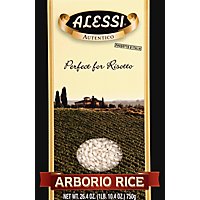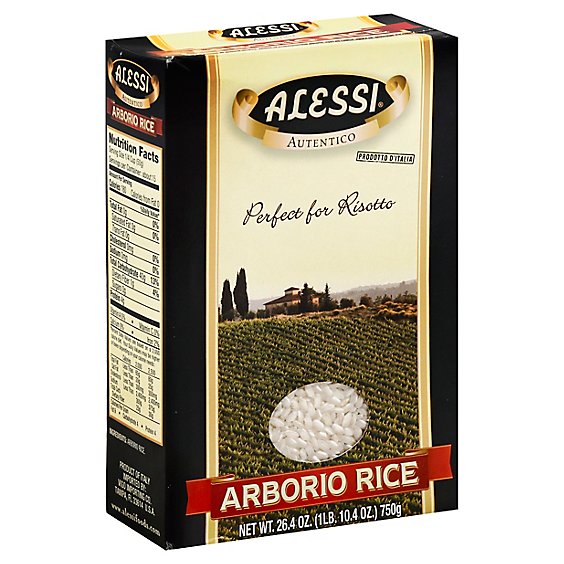Welcome back!
You're currently shopping with your default address:
You're currently using an unsupported browser, which may impact the sites display and prevent key functionality. Update your browser now for greater security, speed, and the best experience on this site. View supported browsers.






| Deliveryavailable | ||
| Pickupavailable |
Perfect for Risotto. Italy is Europe's largest producer of rice. The wetlands and cool temperatures of the Lombardia region harbor ideal conditions for growing this special rice. Over the centuries, resourceful Italians developed a unique cooking technique combining rice with other ingredients common to their area, resulting in the classical Italian dish known as risotto. The key ingredient for authentic risotto is Arborio rice. Arborio's characteristics and cooking properties allow it to absorb the flavors and to retain a certain firmness through the unique risotto cooking procedure. Alessi Arborio Rice can be used for all Italian risottos and also for Spanish Paella. www.alessifoods.com. Product of Italy.
| Nutrition Facts | |||
| |||
Amount per serving Calories180
| |||
| % Daily Value*The %Daily Value (DV) tells you how much a nutrient in a serving of food contributes to a daily diet. 2,000 calories a day is used for general nutrition advice. | |||
Total Fat of 0 Grams daily value 0 percentincludes Saturated Fat of 0 Grams daily value0percent, includes Trans Fat of 0 Grams
| |||
| Cholesterol 0mg0%Cholesterol 0 Milligrams daily value0percent, | |||
| Sodium 0mg0%Sodium 0 Milligrams daily value0percent, | |||
Total Carbohydrate of 40 Grams daily value 13 percentincludes Dietary Fiber of 1 Grams daily value4percent, includes Total Sugars of 0 Grams
| |||
| Protein 4gProtein 4 Grams | |||
| * The %Daily Value (DV) tells you how much a nutrient in a serving of food contributes to a daily diet. 2,000 calories a day is used for general nutrition advice. |
VIGO IMPORTING
| Deliveryavailable | ||
| Pickupavailable |
Disclaimer
We rely on product packaging and data from third-party sources to provide the content to you, including dietary and allergen content. We do not guarantee the accuracy, completeness, or availability of such information. Content is for general informational purposes only. You should not rely solely on the information displayed on our website. Actual product may vary. Always read labels, warnings, and directions prior to use or consumption. If you have questions or require more information about a product, please contact the manufacturer directly.
Allergen Notice: Products in our stores may contain, or may have been exposed to, one or more of the following allergens: peanuts, tree nuts, sesame, milk, eggs, wheat, soy, fish and crustacean shellfish.